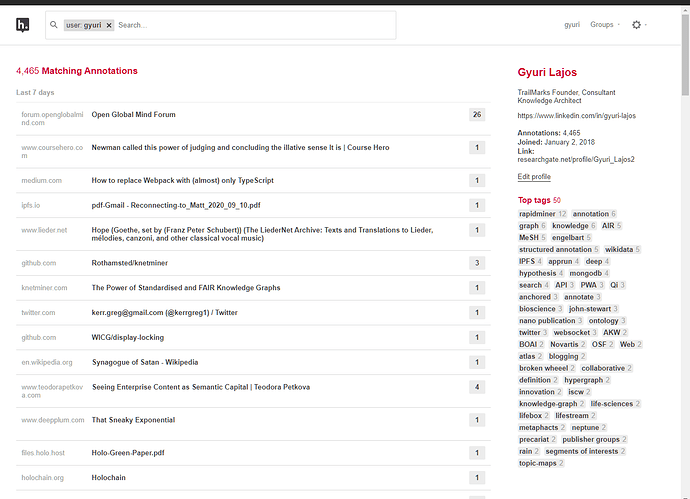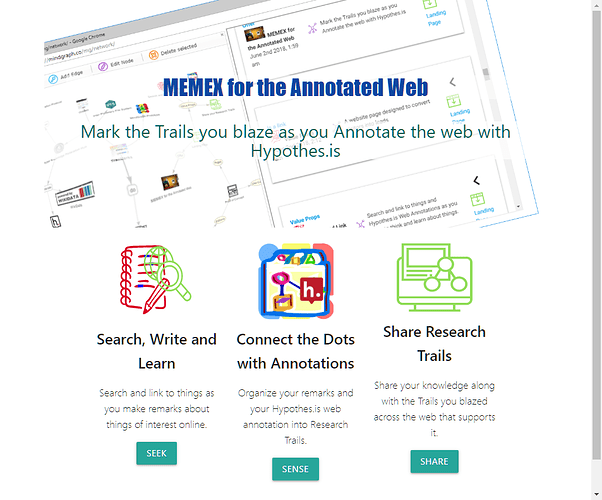I finally got around to read the draft after preparing/converting such long-form manually. Overall, it reads quite decent for the general direction towards which OGM appears to be framed/designed/intended behind the public/surface scenes. As a plan or outline, instead of pondering too long on some vision concept or draft or whitepapering, the storythreading as one initial offer/product/service could be conducted on some groups or for an events, so that might lead to practical experience, allow to adjust/fine-tune, maybe recommendations/testimonials, ways to advertise/promote/present and then expand. Before it remains all in the abstract and designing the perfect logo or landing page, but the real value/benefit needs to be delivered to real customers who are willing and happy to pay for it. Not much of a danger here, many participants are practicioners and professionals, but are there opportunities to try this in a sandbox, early dry-swimming training?
Another interesting difference which becomes more apparent with descriptions like this (which is a good thing, getting to clarity quickly rather than realising misalignment way too late once investments/loss grew), is that OGM/facilitation as a commercial business might have certain competitive wants/needs/obligations and therefore needs to design for all these questions like artificially restricting/controlling data access, confidentiality, managing from where to get money and what to spend it on, ownership of the produced results, splitting profits, expectations on certain quality/reliability of service levels as payment/operations might depend on it, and similar. On the other hand, as @abigailbrody very suitably pointed out, there’s the open commons/community projects on massive scale, like Wikipedia, Open Streetmap, libre-free software development, OA/OER (the less confused, non-fake ones), and these are created and maintained/stewarded with little money or money just as a secondary instrument, open/inclusive/preserving policies, as they’re not competing with other proprietary, artificially restrictive, closed, exploiting enterprises, but are universally agreed as a necessary and superior offer in comparison to earlier products like the Encyclopedia Britannica or Encarta.
Sure enough, there are still plenty of commercial information services, as I don’t think we could reasonably, usefully get a Bloomberg Terminal or Gartner reports or similar kinds of things. So now, one question might be whether or not or to what degree the OGM name/brand/initiative is supposed/expected/intended/designed to become a financial success with reputation among + access to big industry players and/or also helping small participants in some markets or supporting friendly/good organizations in/with what they do, enable stable employment, become an institution that can influence slow companies in urgent need towards more favorable actions and decision making, or, again, on the other hand, expand and apply techno-ethical libre-free future information society principles to other domains like sense-making or online collaboration or systems analysis + urgent, complex problem solving, even in cases where it would operate at a loss or no income at all in the many important areas where economically no money is available at all or generally simply not spent/invested.
There’s also the option to design for a hybrid, either very deliberately separating into two branches who then via carefully installed protocols/interfaces can enjoy the fun of interacting with each other (also for resolving such conflicts of interest and remaining able to do things in both and all worlds), or OGM operates as one integrated entity but then has to somehow determine how it’s going to handle the different perceptions/expectations by people, which can easily be a source of constant confusion and subsequent frustration.
Please apologize the exaggeration, of course these two main perspectives don’t need to be mutually exclusive. There’s good money to be earned for actual work, which can be highly specific, custom facilitation which isn’t useful beyond the boundaries of the single, specific case, or compensation for the investments/efforts related to physical scarcity like time, location, materials, etc. In digital and for information however, these are inherently and naturally not scarce at all, they always only keep duplicating, and there’s no reason to ever have a shortage of an immaterial good. Trying to artificially limit and restrict such in order to then be able to sell access to it, that’s suspicious at best, and in many cases very destructive and unethical. Rules of the physical world don’t necessarily carry over to the immaterial information world, nor vice versa. Business models intended for one of them exclusively or covering parts of both should better take that into account.
No matter how that’s going to be decided, one direction at the exclusion of the other, or a hybrid, or a mix, it’s much better to gain some clarity about this in advance and not go on for a long time with a lot of confusion and frustration, to in the end when it’s much too late part ways in bitter disagreement and at a huge loss/waste of earlier investments/effort. For that reason, I think this draft is an excellent contribution to outline the general concepts and invoke further discussion, as already arrived in the replies to this thread and elsewhere.




